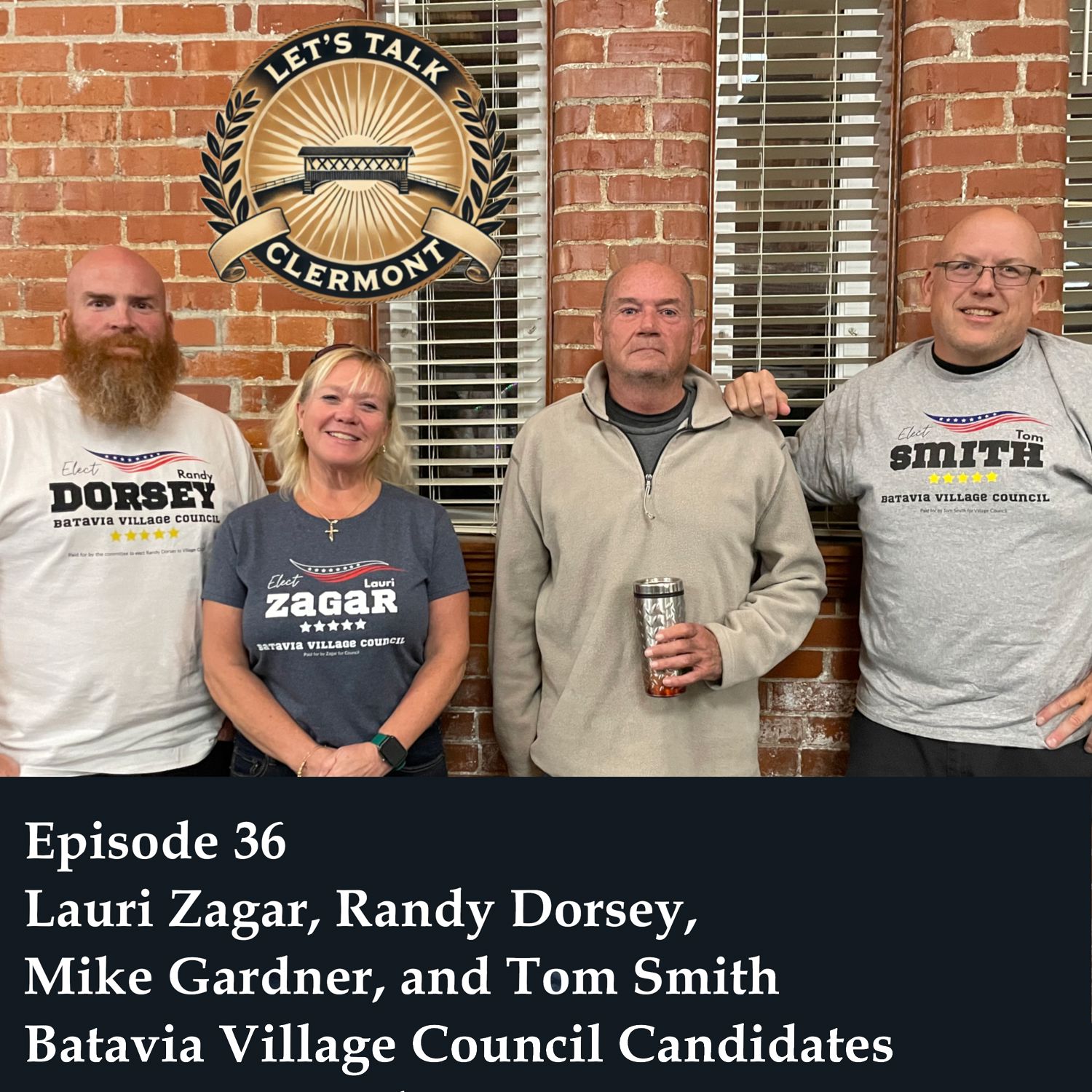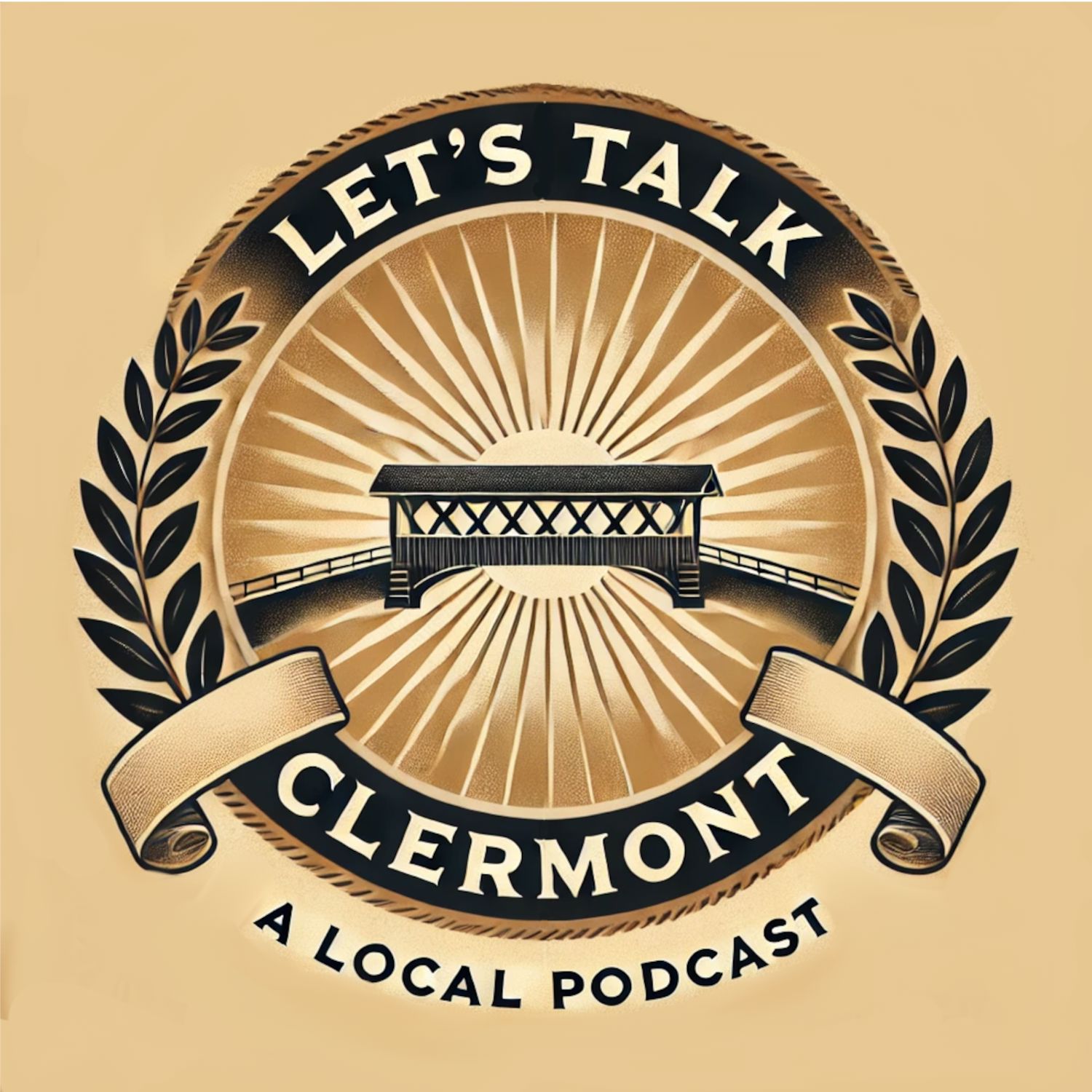29 October 2025
Episode 36 - Lauri Zagar, Randy Dorsey, Tom Smith, and Mike Gardner - Batavia Village Council Candidates - E36

Episode 36 — HB 186 & HB 335 plus an interview with Batavia Village Council Candidates
We start the episode off with a look at Ohio property-tax mechanics (mills, inside vs. outside, HB 920) and two House-passed bills now headed to the Senate: HB 186, aimed at offsetting school-floor hikes after inflationary reappraisals, and HB 335, which would peg inside-millage growth to inflation by trimming rates after reappraisal. One published estimate says the bills combined could save homeowners nearly $2B over five years.
Then, a roundtable with Lauri Zagar, Mike Gardner, and Randy Dorsey (Batavia Village Council candidates) on growth, CRAs, finances, transparency, and a pragmatic vision for downtown. Plus village-township relations and why they’re against dissolution (and not chasing city status). Quick audio note: single-mic setup; you may need to nudge the volume during the interview.
Highlights- Millage quick-hit: why HB 920 drops effective rates on voted levies as values rise
- School 20-mill floor and how HB 186 proposes to blunt inflation-driven bumps
- HB 335 in plain terms: cap year-over-year inside-millage collections to inflation after reappraisal
- Where both bills stand: passed the House; now in Senate committee
- Council trio on growth: “yes” to planned growth; skepticism on blanket residential CRAs/annexations
- Downtown wish list: small businesses, services , CIC used strategically
- Transparency fixes: fuller agendas/minutes online, open comment channels, fewer “emergency” votes
- Finances: debt tied to development deals, equipment needs, and a comp-time policy sidebar
- Village/township relations: mend the partnership; co-host community events; fund shared services fairly
- Dissolution? No. City push? No. Keep the village, improve the process.
(00:00:21) Welcome, fall vibes, and show format shift
(00:01:24) Property tax primer recap and two House bills
(00:02:58) House Bill 186: School millage floor and inflation cap
(00:05:08) Clarifying the school tax credit mechanism
(00:05:24) House Bill 335: Inside millage growth tied to inflation
(00:07:27) Example: Reappraisal vs. inflation and collections
(00:08:41) Caveats, projected savings, and invitation for experts
(00:09:07) Value-for-value: Donations, credits, and how to support
(00:13:15) Subscribe, newsletter perks, and listener engagement
(00:17:17) Upcoming guests: Fire chief and CJFED levy preview
(00:18:19) Today’s guests: Batavia Village Council candidates
(00:20:36) Interview setup and candidate introductions
(00:21:35) Are they a ticket? Shared goals and village stakes
(00:23:18) Growth stance: Business focus, less on residential abatements
(00:25:01) Traffic, access, and planning concerns on Main Street
(00:27:07) Candidate backgrounds: County, education, policing
(00:29:10) What residents want: Grocer, small shops, historic core
(00:31:01) Revitalization hurdles: Buildings, CIC, and incentives
(00:33:03) Beyond growth: Communication and transparency gaps
(00:35:12) Village finances: Debt, salaries, and budgeting methods
(00:38:41) TIF/abatement mechanics and capital needs
(00:41:30) Meeting conduct: Responsiveness, minutes, and access
(00:46:14) Budgets, UAN system, and general fund optics
(00:47:15) Debt, growth pace, and risk if expansion slows
(00:49:25) Property tax repeal talk and fiscal preparedness
(00:50:18) Police comp time policy and scheduling practices
(00:54:07) Dissolution? City status? Candidates say no to both
(00:56:20) Village-township relations and CJFED funding fairness
(01:00:04) Concrete transparency steps: Agendas, docs, and forums
(01:03:18) Executive session use and public discussion balance
(01:05:06) Boards, vacancies, and boosting community participation
(01:10:06) Running for the community, not against opponents
(01:12:49) How this slate formed and why they stepped up
(01:14:38) K-9 program dispute as catalyst for change
(01:16:07) CRA changes without notice and ethical concerns
(01:21:04) Where abatements fit: Business focus; schools and fire made whole
(01:22:00) After abatement: Affordability, resale, and Main Street impact
(01:25:14) Downtown strategy: Mixed use and learning from peers
(01:26:31) County footprint on Main Street and practical limits
(01:26:48) What’s working: Street, police, and civic pride
(01:29:36) Closing pitches: Process, ethics, and teamwork vision
(01:39:03) Post-interview wrap and thanks
(01:40:03) Event rundown: Trick-or-treat, genealogy, retreat, craft show
(01:44:14) Final V4V reminder, newsletter perks, and sign-off
Get involved!
Tips, guests, or events? info@letstalkclaremont.com
Follow on Facebook & Instagram, and signup for the Thursday newsletter.
Newsletter
If the show brings you value, consider supporting us!
Donate
